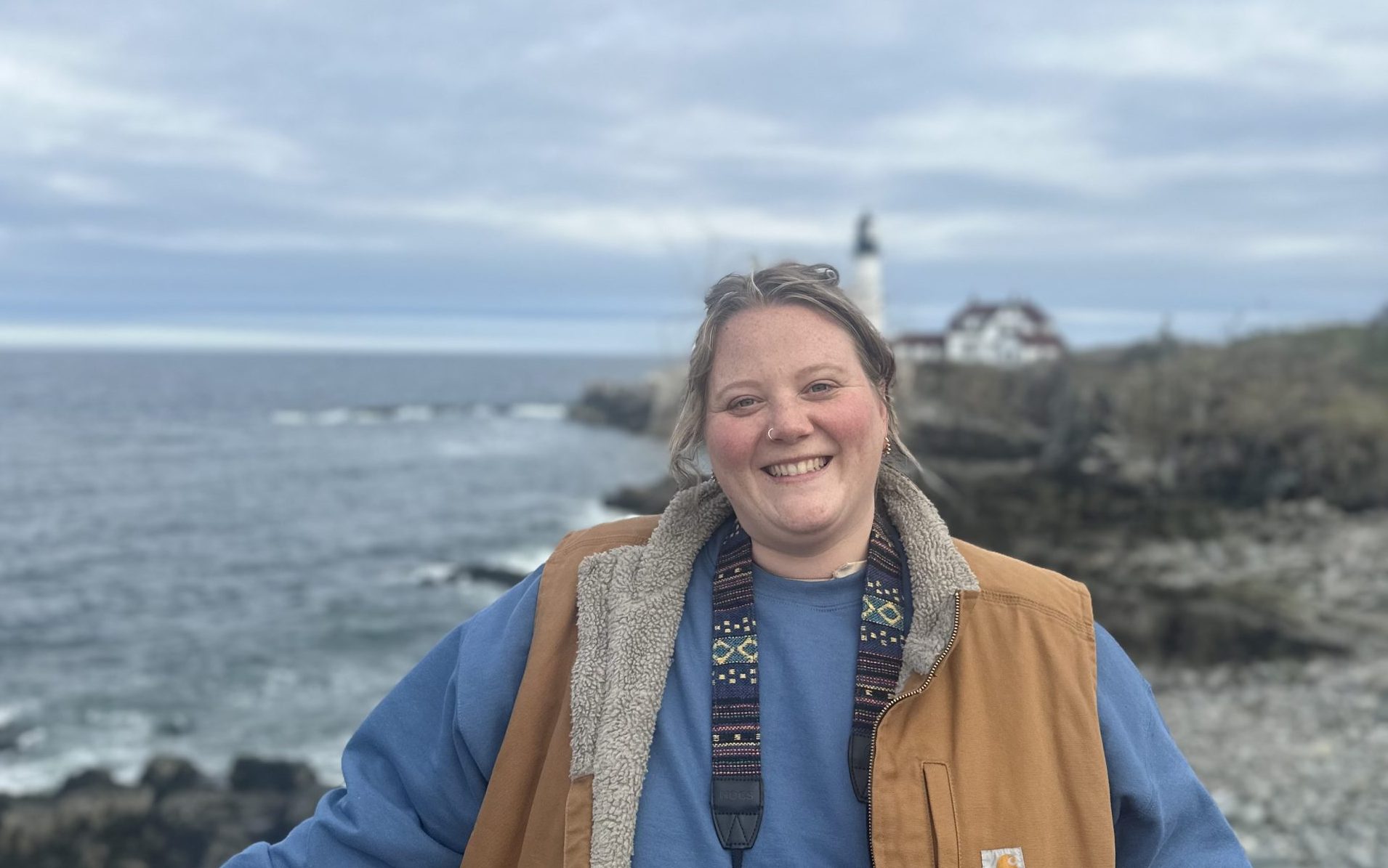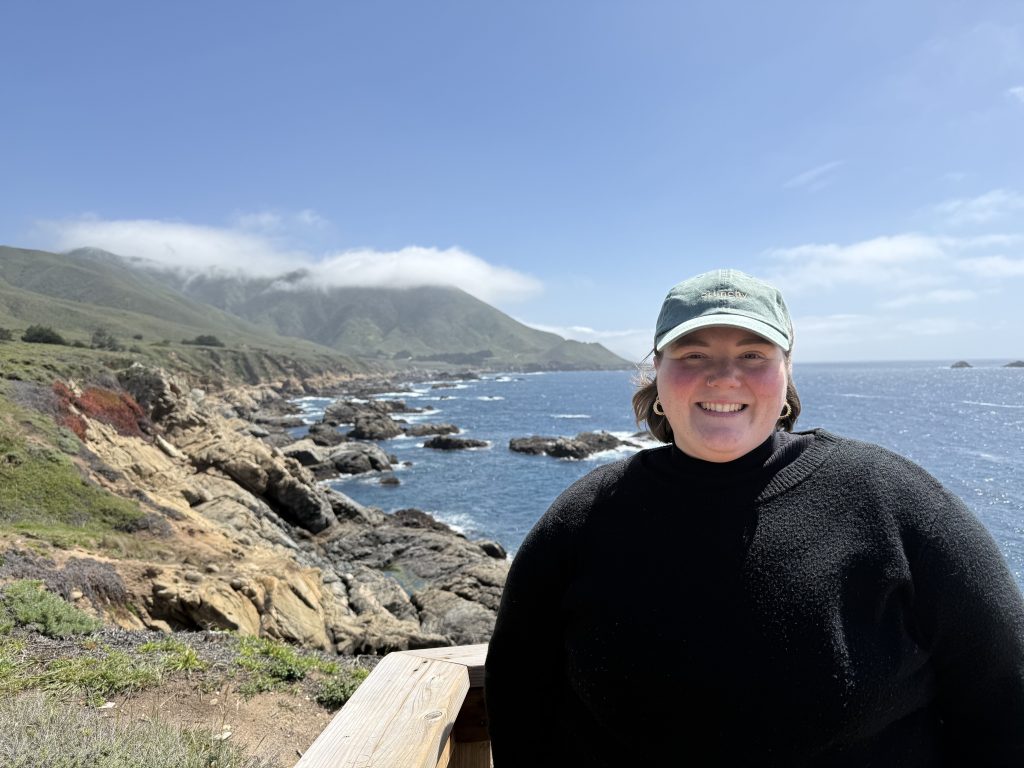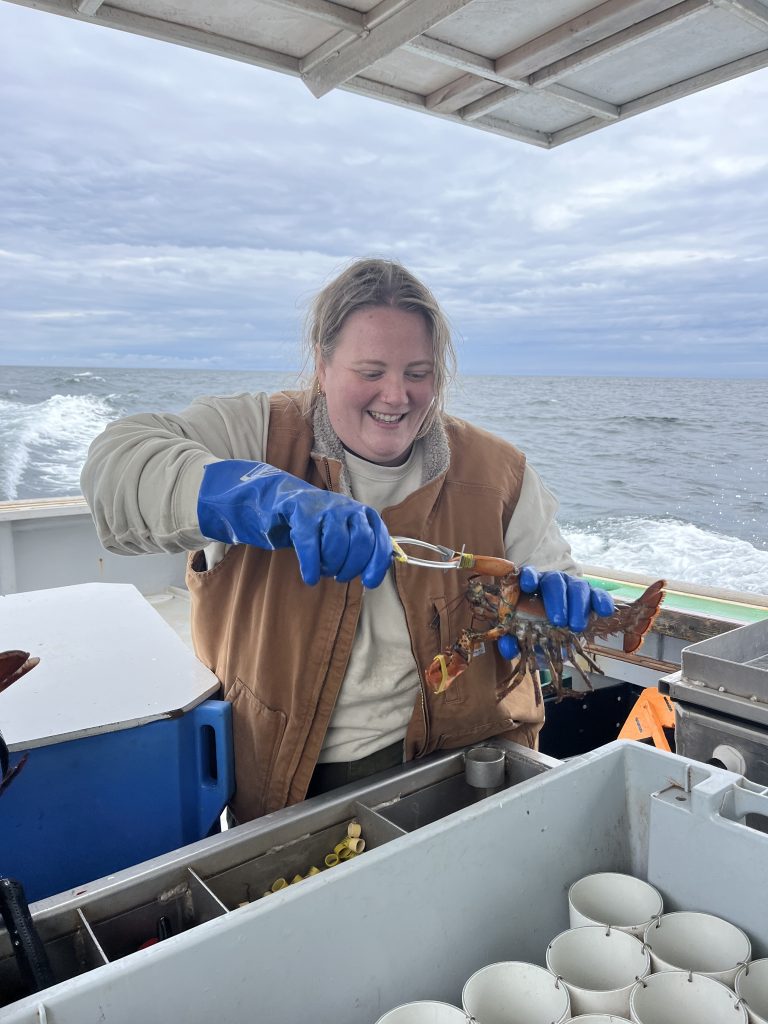
Joelle Kilchenmann: From Tide Pools to Maine’s Lobster Fishery
Always a child who would rather be outside than anywhere else, it was on the cliffs of Acadia on a ranger-led tide pooling walk that I decided I wanted to be a marine biologist. My dreams shifted many times after that, but the path found me again when I entered Northeastern University as part of the first Marine Biology class. I’d always loved school and nature, and studying the environment felt like exactly where I belonged. At Northeastern, I joined the Three Seas Program – a nine-month immersive experience that took us from Boston’s North Shore to the Smithsonian Research Institute in Panama and finally to Friday Harbor in the San Juan Islands. With 23 students, we ate, dove, studied, and explored together, taking courses from marine botany to reef fish ecology and conservation biology. Those months solidified my love of science and convinced me that I’d be a coral reef ecologist (spoiler: I’m not!).

A first-generation college student, I graduated without a clear next step and began what I now call my “detour years,” working customer-service jobs and traveling. Living in Ireland and later Switzerland, I found myself back in the marine world through a scuba-diving travel agency. There, my views on marine conservation broadened as I met people who depended on the ocean for their culture, food, and livelihoods. I began to see the ocean not just as a seascape to protect but as a socioecological system deeply intertwined with human life. As Covid-19 shook up the world and I started to re-evaluate where I wanted to be and what I wanted to be doing, I kept coming back to the idea of applied research. I felt like I could bundle up my experience working with all different kinds of people and my new found appreciation for complex systems and head off to graduate school. I met Dr. Joshua Stoll through my close friend and Three Seas cohort member, Theresa Burnham and shortly after, moved to Maine. Closer than ever to those cliffs that drove me to marine science in the first place.
Josh was hiring a master’s student to work on a project to define social indicators of resilience in Maine’s lobster fishery. The fishery is a major economic and cultural driver in the state, generating hundreds of millions of dollars in direct earnings every year. As such, the biological health of the lobster stock is incredibly well monitored. As Josh would say, it’s the ‘cadillac of biological monitoring.’ Despite this heavy investment, there had been little effort focused on understanding the socioeconomic component of the fishery. Shock events, like Covid or the 2008 financial crisis, highlight how those two systems can become de-coupled. There were just as many lobsters on the seafloor in 2020 as in 2019, but the impacts on local communities of those two years were vastly different. Our work seeks to identify metrics that managers could track to better notice and respond to shifts in the socioeconomic condition of the fishery.

Two months into my masters degree, I was hooked. I loved living in Maine, talking with fishermen, and working with our team. I was fortunate enough to switch into a PhD program when a large interdisciplinary project led by the Lobster Institute – Navigating the New Arctic: Lobster Network (NNA) – was funded by the National Science Foundation. This project continues the work of social indicators and nests it within a greater analysis of regional change across oceanography, biology, ecology, and the social sciences. My dissertation work has bloomed out of the social indicators and NNA work. I focus on how socioeconomic drivers impact risk taking at sea. Commercial fishing is one of the most dangerous occupations in the United States, so understanding, if, how, and when fishermen are taking risks is important to managing for the longevity of these industries.
Working with these projects has allowed me to develop meaningful relationships across industry, management, and researchers involved with lobster fishing. I’ve gotten to have conversations on boats, in co-ops, on docks, and in conference halls. I am inspired and motivated by these connections every day and I’m deeply grateful that my journey has brought me back to Maine and I hope to continue to build my life and career here.
